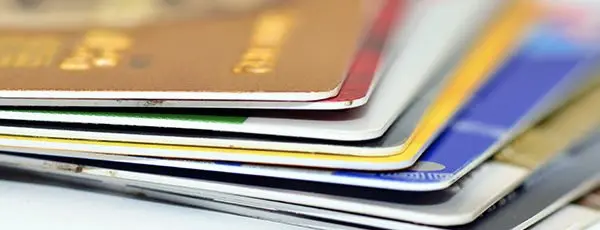Will Your Credit Limit Be Cut?

- Some credit card issuers cut customer credit lines do to coronavirus.
- If your debts are high or your credit rating drops, your credit limits could be cut.
- Contact your credit card company if you need help making payments or you want to appeal a limit cut.
Table of Contents
The economic hardship caused by the coronavirus pandemic has put many Americans at risk to miss credit card payments. Credit card issuers are aware of this, so in an effort to prevent their customers from charging up large balances that they may not be able to pay off, several of them have reportedly reduced credit limits without warning their customers, just as they did during the Great Recession.
It might be hard to know if you will face this action from your credit card. Ideally, a card issuer will send you an email or letter informing you they reduced your credit limit. Unfortunately, however, they may skip this step. So it’s a good idea to check your credit limit online or through the app on a regular basis.
Let’s dive deeper into why credit card companies are slashing limits and what you can do if you find out your credit limit is less than what it was before the pandemic.
Why would card issuers reduce limits?
When you apply for a credit card, a credit card company will look at your application and credit report. These factors will help them determine your credit limit:
Income
Payment history
Credit utilization
Employment history
Debt-to-income ratio
Limits on other credit cards
The higher your credit limit, the greater risk your credit card company is taking in extending you the money. So if they reduce the amount of money you’re allowed to borrow, they are reducing that risk.
What is the impact of a limit cut?
There are two major reasons a credit limit cut can be problematic. First, it can hurt you if you’re unemployed and relying on your credit card to cover your expenses. You will have less credit to use to pay for groceries, utilities, and other basic necessities.
Second, a lower limit can take a toll on your credit score because it affects your credit utilization ratio, which accounts for 30% of your score. Your credit utilization ratio is how much credit you are using compared to how much you have available.
For example, if you have $4,000 in unpaid balances across your credit cards and your credit limit is $20,000, your credit utilization ratio is 20%. In the event your credit limit gets cut to $10,000, your ratio will be 40%. Financial experts suggest you keep your utilization to 30% or lower, if possible.
What to do if your credit limit gets cut
There are some things you can do to protect your credit card limits. First and foremost, don’t overspend. If you know you can’t afford something, don’t buy it — wait until your economic situation improves. Also, you could move small recurring purchases like a Netflix subscription or your internet bill to credit cards you don’t use. Since unused credit cards are more likely to face credit limit decreases first, this strategy can keep your cards active without hurting your budget. If you notice a credit limit cut, consider these tips:
Contact your issuer: Reach out to your credit card company and ask them to increase your credit limit. They may reconsider, especially if you’re a responsible borrower and have a history of making on-time payments.
Request a credit limit on a different card: If you have multiple credit cards and need a higher limit, try to contact another card issuer to find out if they’ll raise your credit.
Pay down your balance: To give yourself more cushion, it’s a good idea to pay down your credit card balance if you can. You may have to cut expenses or pick up a side hustle to do so.
How your credit card company could help you
Fortunately, many credit card companies are actively supporting their customers during the coronavirus outbreak, and yours could be one of them. If you’ve lost your job and can’t make your payments, contact your issuer to learn about the options available to you. According to CNET, here’s what you could expect from a few of the leading card providers.
American Express says they are designing unique solutions for each customer. They may reduce monthly payments or waive late fees or interest charges.
Citi may waive minimum payment requirements and late fees for two statement cycles. The issuer will also report accounts as current during the waiver period.
Discover is offering payment flexibility or waiving late fees or interest, depending on each customer’s unique situation.
Wells Fargo may help eligible customers who contact them through payment deferrals and fee waivers.
No matter what happens to your credit card limit, it’s important to follow the typical guidelines for using credit cards. Do not borrow more than you can pay off in full and on time every month. In addition, try not to depend on credit cards for emergencies as doing so can steer you toward a cycle of debt. Instead, save for emergency fund so that you have funds to fall back on when life throws a curveball your way.
Improve your credit and finances
Looking for more tips on how to manage your money, get out of debt, and improve your personal and business finances during the pandemic and normal times? Come back to our blog each week for more information.
Learn More
How to Prepare for a Recession If You are Already Struggling (Freedom Debt Relief)
Does Unemployment Affect Your Credit Score? (Freedom Debt Relief)
What is a Balance Transfer? (Freedom Debt Relief)
Your Bank Could Lower Your Credit-Card Limit — What to Do if That Happens (Morningstar)